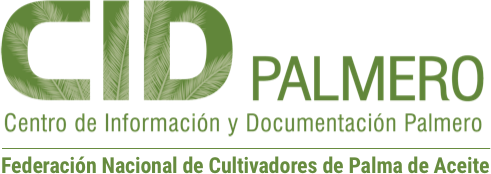| dc.creator | Cepeda U., Fernando | |
| dc.date | 2000-01-01 | |
| dc.date.accessioned | 2020-07-25T11:17:54Z | |
| dc.date.available | 2020-07-25T11:17:54Z | |
| dc.identifier | https://publicaciones.fedepalma.org/index.php/palmas/article/view/819 | |
| dc.identifier.uri | http://repositorio.fedepalma.org/handle/123456789/139446 | |
| dc.description | Bearing in mind the economic changes which occurred after the cold postwar, such as the commercial liberation, the privatizing, the deregulations and the new role of the State and civil society which was called the Washington Consensus, Colombia became disadvantaged in comparison with the international community because it was not prepared. It did not have high levels of education, no universal language, no infrastructure, no ports, or airports. Added to the economic disadvantage with which the country competes, today other factors are considered which, especially in Colombia, are relevant within the global context: the guerrilla and paramilitaries. He presents a diagnosis of the Colombian crisis where the weakness of the establishment is reflected and the lack of search for solutions at a national level and invites the civil society to become involved in the process and that the things that the country is doing in all the fronts will be shown. | en-US |
| dc.description | Teniendo en cuenta los cambios económicos surgidos después de la posguerra fría, tales como la liberación comercial, las privatizaciones, la desregulación y el nuevo papel del Estado y la sociedad civil, a lo que se denominó el Consenso de Washington, Colombia entra en desventaja frente a sus competidores porque no estaba preparada. Entró sin altos niveles de educación, sin idioma universal, sin infraestructura, sin puertos y aeropuertos. Sumado a la desventaja económica en que compite el país, hoy son considerados otros factores que, en Colombia especialmente, son relevantes dentro del contexto global: la guerrilla y el paramilitarismo. Presenta un diagnóstico de la crisis Colombiana donde se refleja la debilidad del establecimiento y la falta de búsqueda de soluciones a nivel interno nacional y hace una invitación para que la sociedad civil se involucre en el proceso y se muestren las cosas que el país está haciendo en todos los frentes. | es-ES |
| dc.format | application/pdf | |
| dc.language | spa | |
| dc.publisher | Fedepalma | es-ES |
| dc.relation | https://publicaciones.fedepalma.org/index.php/palmas/article/view/819/819 | |
| dc.rights | Derechos de autor 2017 Revista Palmas | es-ES |
| dc.rights | https://creativecommons.org/licenses/by-nc-nd/4.0 | es-ES |
| dc.source | Revista Palmas; Vol. 21 Núm. especial, (2000); 46-57 | es-ES |
| dc.source | 0121-2923 | |
| dc.subject | palma de aceite | es-ES |
| dc.subject | elaeis guineensis | es-ES |
| dc.subject | políticas | es-ES |
| dc.subject | acuerdos internacionales | es-ES |
| dc.subject | mercados | es-ES |
| dc.subject | desarrollo económico y social | es-ES |
| dc.subject | tendencias incentivos | es-ES |
| dc.subject | orden público | es-ES |
| dc.subject | Colombia | es-ES |
| dc.subject | sector palmicultor | es-ES |
| dc.title | Where is Colombia headed? | en-US |
| dc.title | Hacia dónde va Colombia? | es-ES |
| dc.type | info:eu-repo/semantics/article | |
| dc.type | info:eu-repo/semantics/publishedVersion | |


